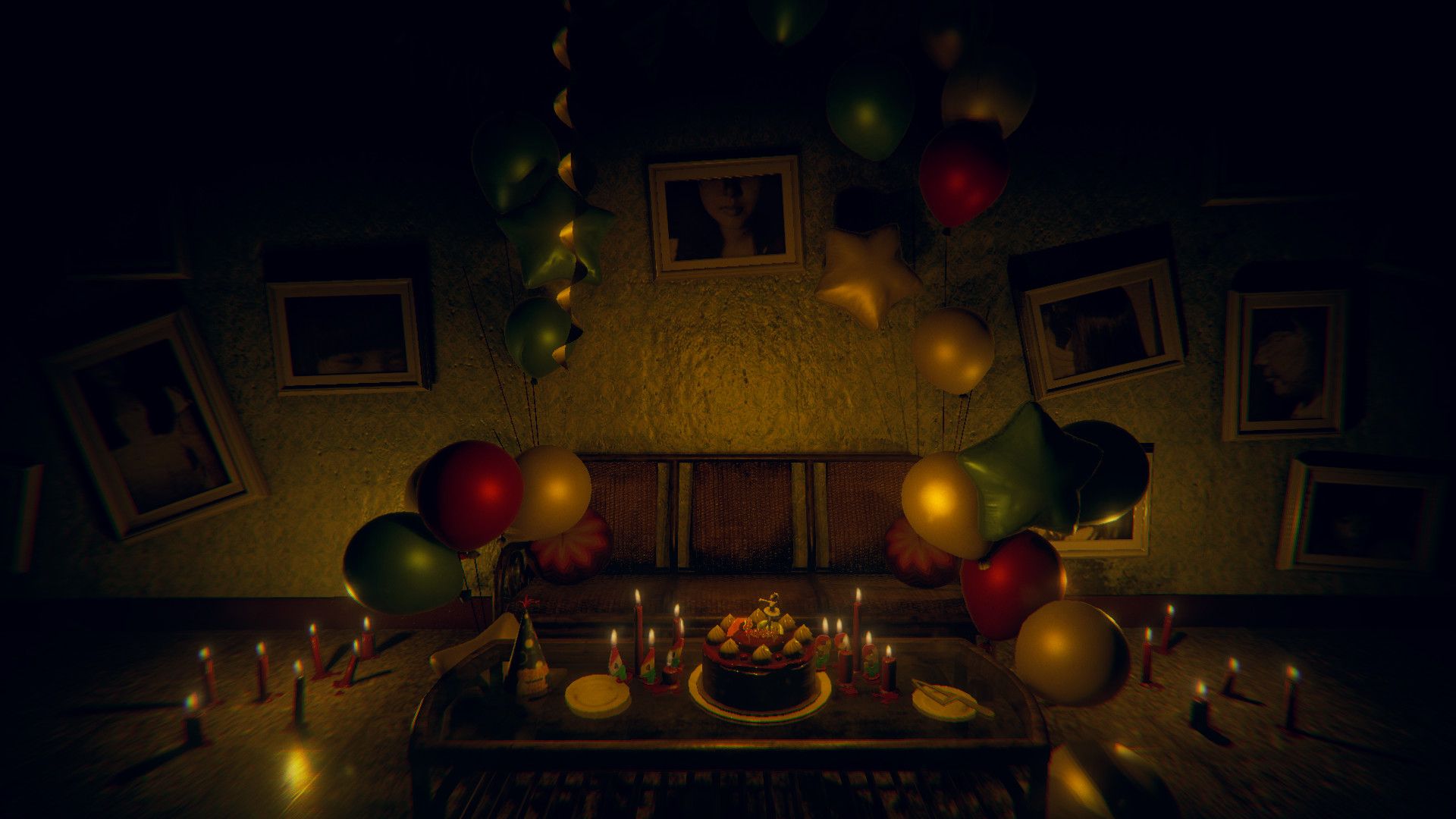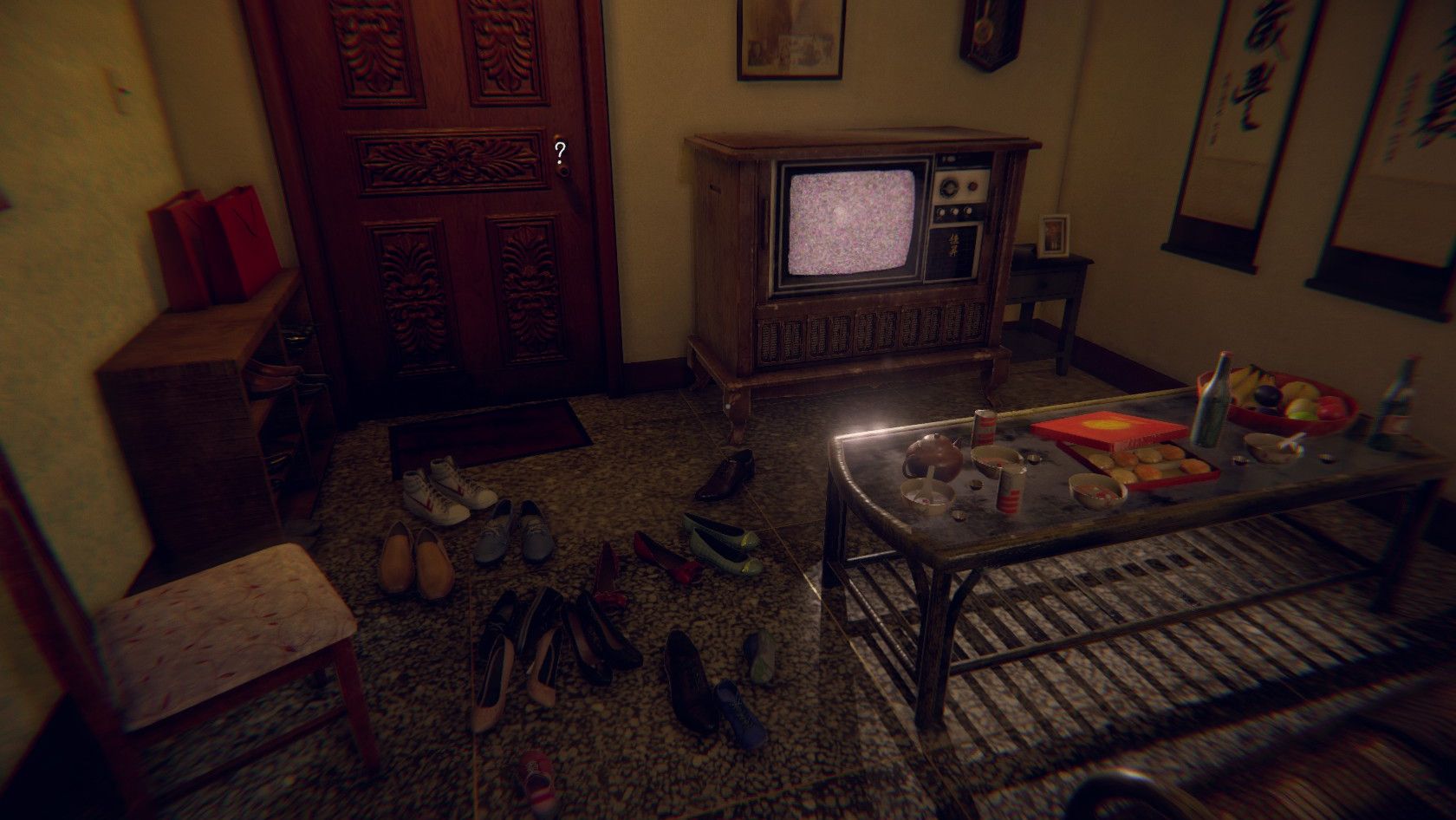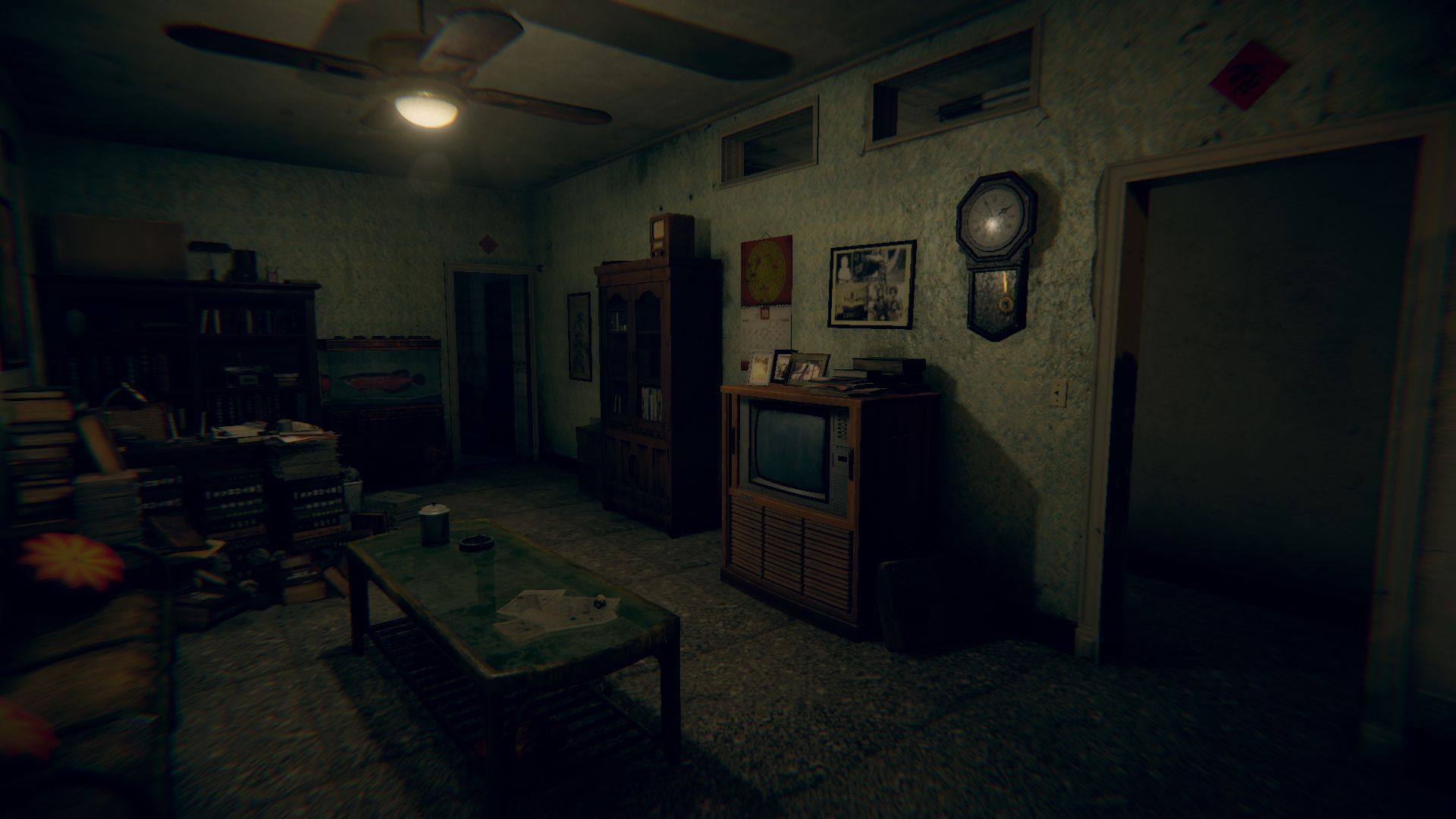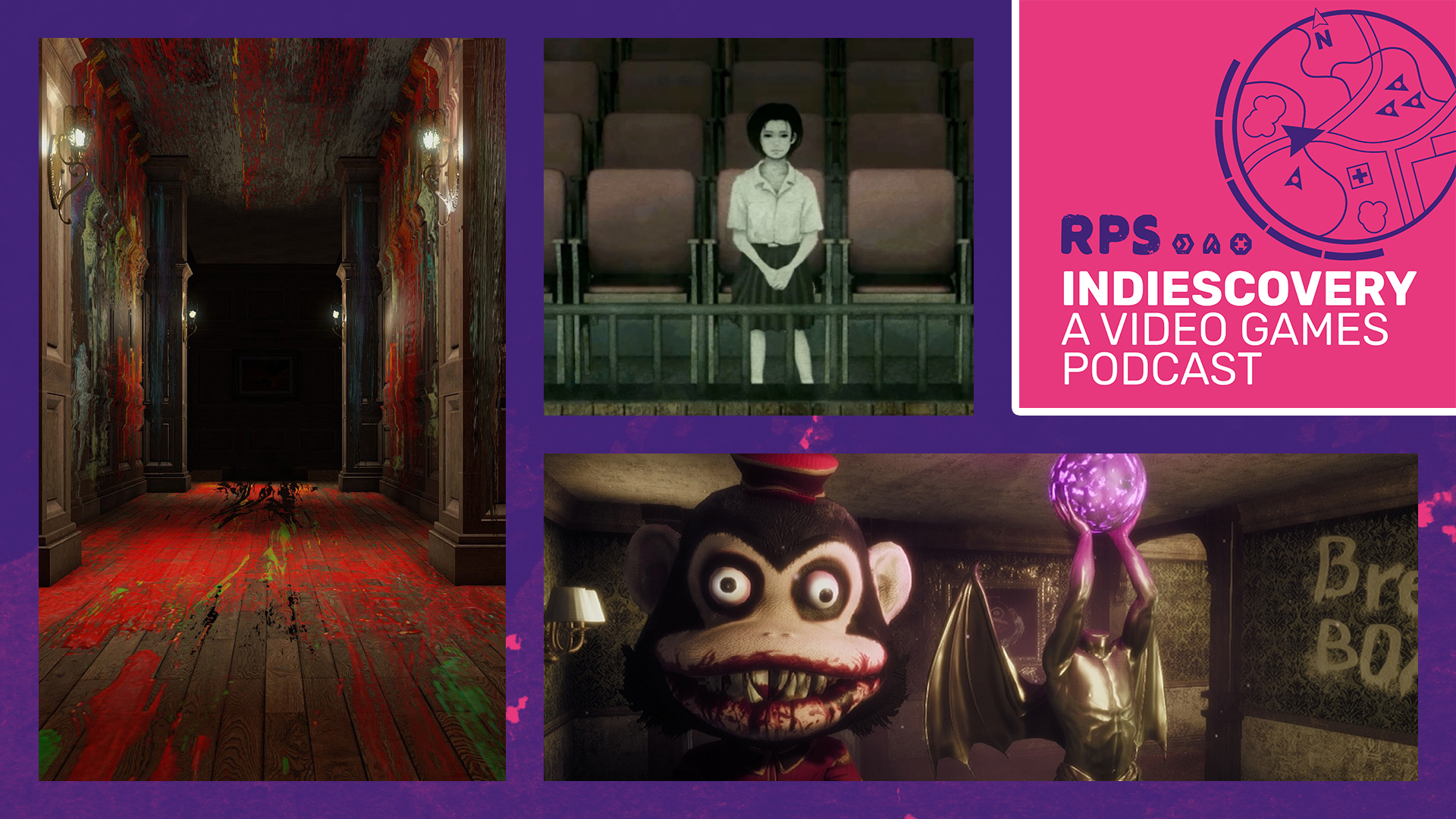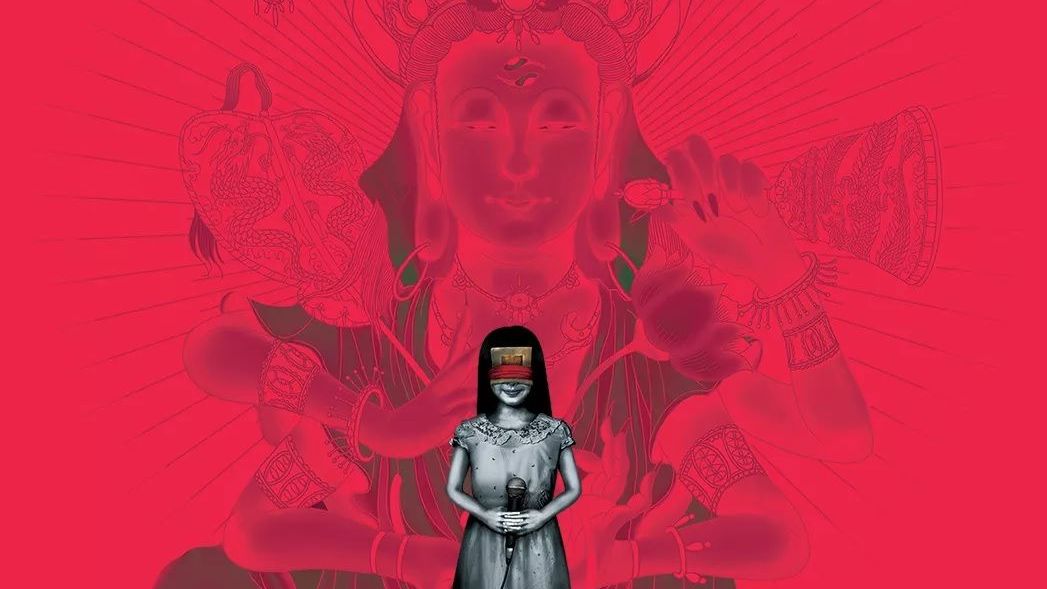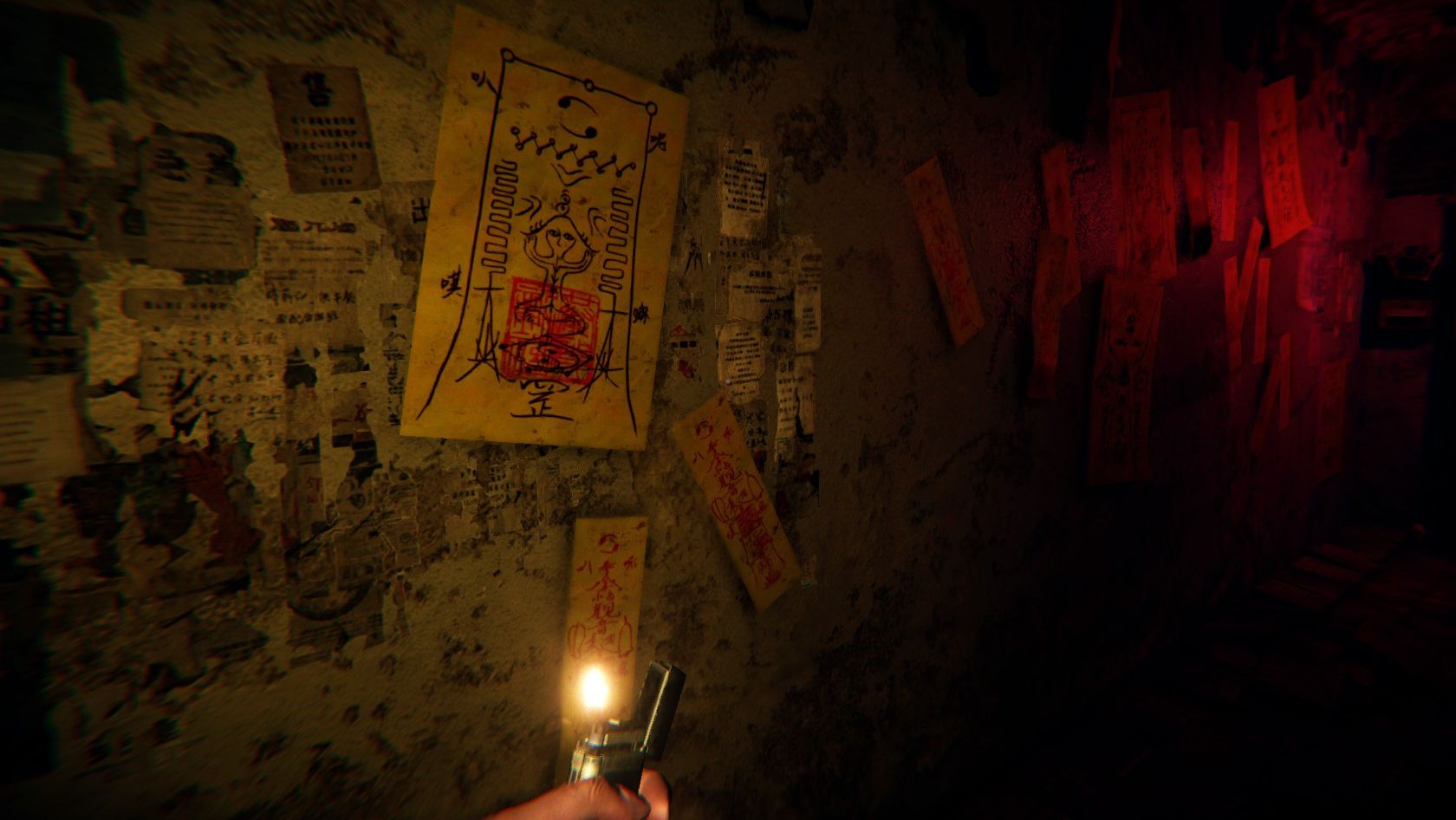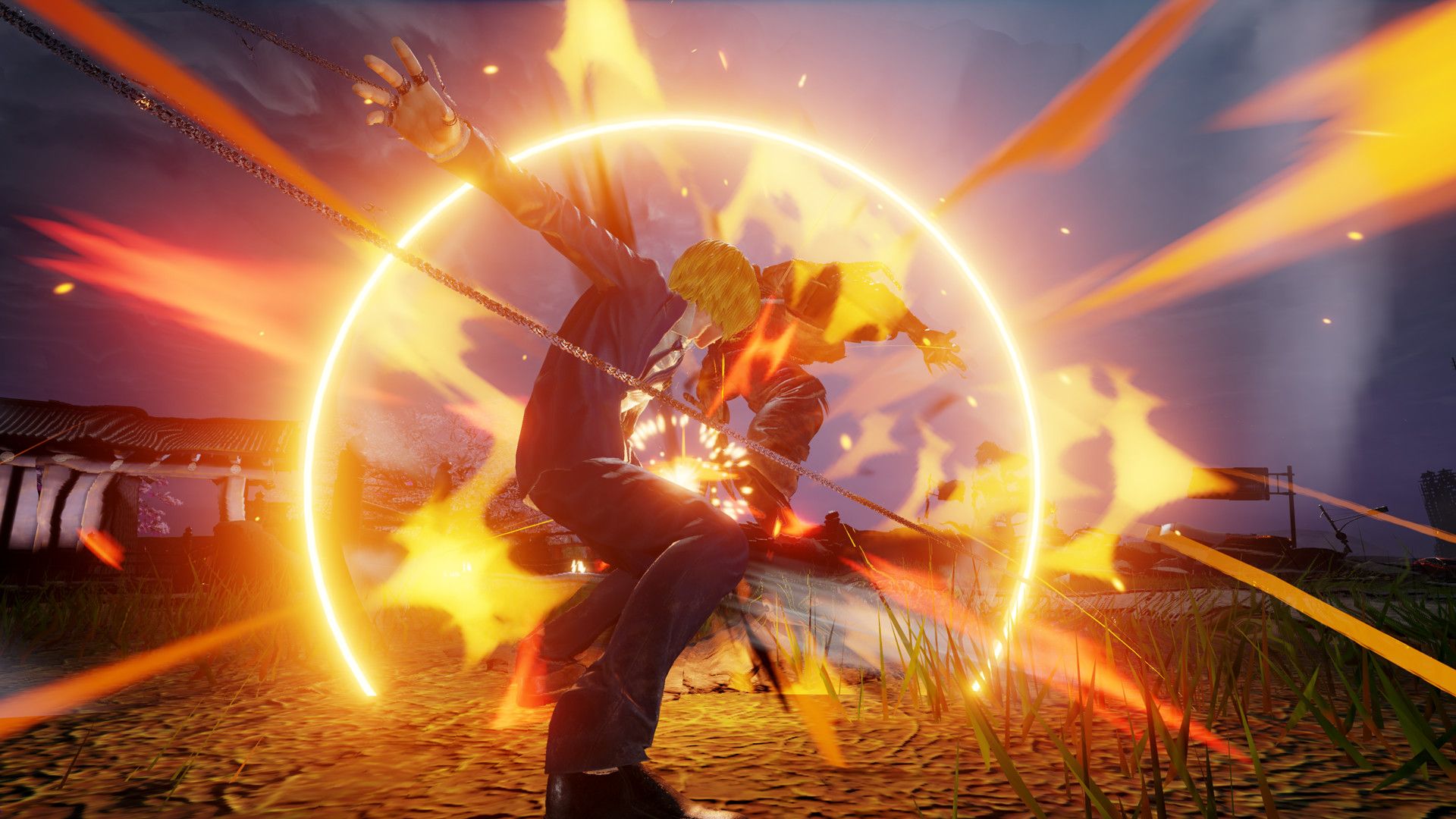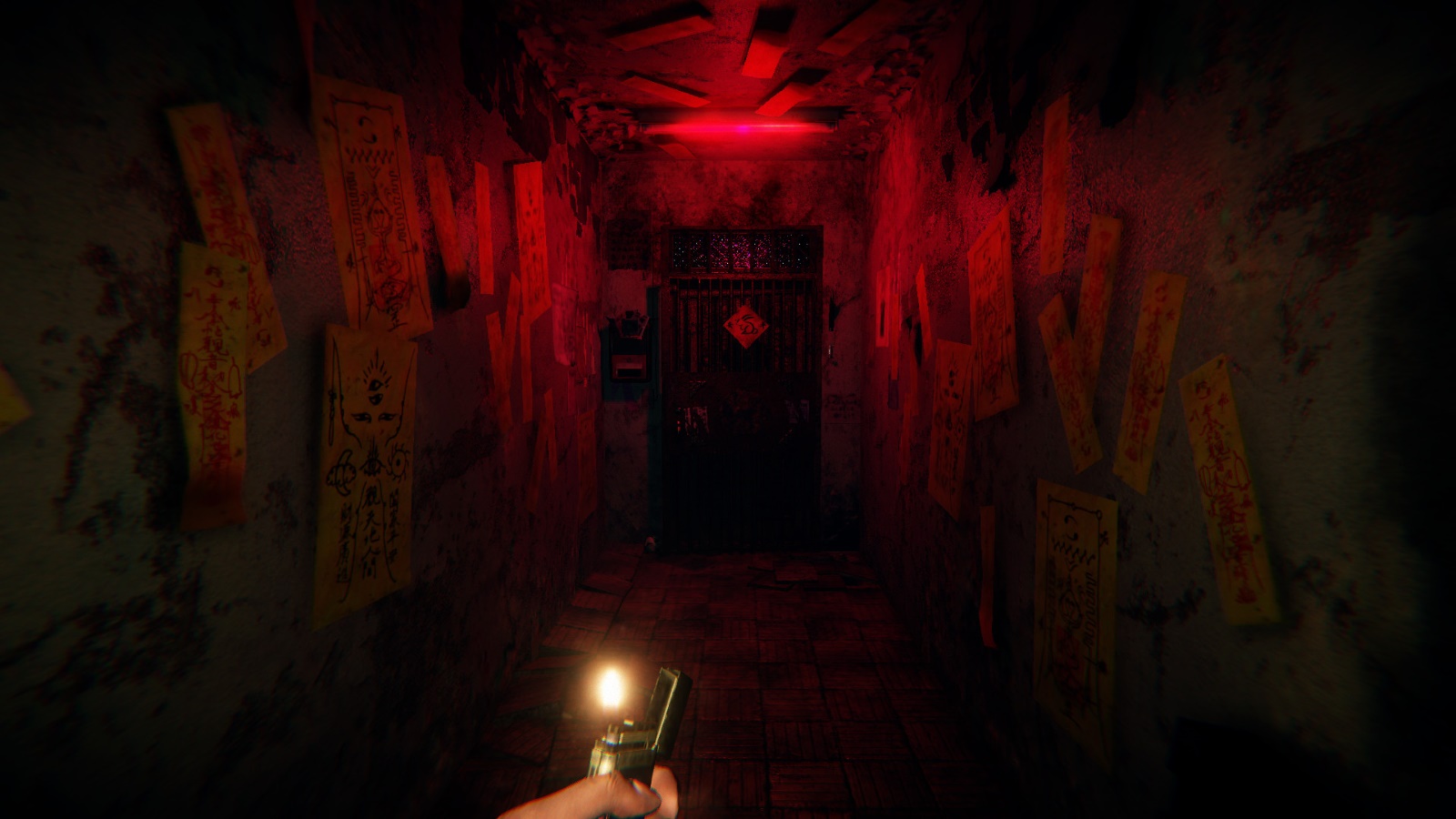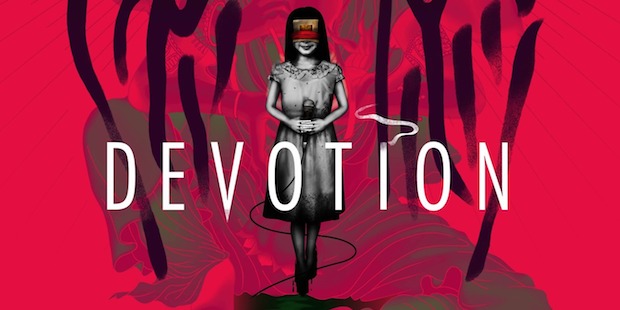Wot I Think: Devotion
Eight, eight, eight...
Editor's note: You can't buy Devotion anywhere currently, for reasons discussed in this article. But we're reviewing it anyway.
In my younger years, my parents brought me to a Chinese shaman called a jitong. These visits both unnerved and fascinated me. The jitong, who lived in a grimy, dimly lit apartment that smelt of incense, would let herself be possessed by a spirit that spoke through her, sharing advice and predictions for visiting devotees. I remember seeing her go into uncontrollable spasms, murmuring indecipherably about what I assumed was divine expression from the spirit itself. An assistant was interpreting her gurgled speech. The visit culminated in the jitong snapping out of her trance about an hour later. She eventually collapsed into a chair, wearing an expression of both shock and relief as the colour returned to her face.
Such occult sights can seem terrifying, but these, along with years of Chinese cultural upbringing, embedded in me a sense of fear and reverence for the afterlife. It was this strange mix of emotions that gnawed at me as I played Devotion, a first-person horror game set in a derelict Taiwanese apartment complex in the 1980s.
It puts players in the shoes of an acclaimed script writer named Du Fengyu, who married a former singer called Gong Lifang. Giving up her successful career after her marriage, she devotes most of her time to raising their daughter, Mei Shin, at home. Mei Shin soon discovers her own talent for singing, and she endeavours to follow in her mother’s footsteps. Her live performances at a children’s talent show are broadcasted from a recurring television screen that plays even in the dead silence of the apartment. It’s all set amidst an atmosphere tinged with Chinese spiritualism and religion, as evidenced in the objects found in the game, from a small altar to pictures of the fictional deity, Cigu Guanyin.
Devotion gets its scares by enticing the player to wander through the Du family’s haunted apartment (for unspecified reasons) much like Hideo Kojima and Guillermo del Toro’s P.T. Its puzzles are minimal and straightforward, serving more as a means of advancing the plot and the unsettling atmosphere, rather than getting the player to rack their brains. As I traverse its rooms, I was surprised and spooked by the apartment’s resemblance to my own home. The developer’s attention to detail (the Chinese-styled wall calendar, the distinct marble floor) is remarkable; there’s even a note that’s hastily written on a scrap of calendar paper. This intimacy pulled me closer to the game’s horror. Yet, its oppressive ambience is universal, even if the player isn’t familiar with these cultural artefacts. The scares are still meticulously crafted to tap into our anxieties and fears, as the game steadily ratchets up the tension.
Take the professionally taken family portrait, or a child’s crude drawing of her beloved family, or even several dishes of home-cooked food. These are objects that once belonged to a loving home, yet their presence is in stark contrast to the unwelcoming environment: the narrow, claustrophobic spaces of the apartment, the reddish glow emanating from the altar, and the scratchy, static noise from the television. While seemingly cliché, these horror trappings work together to create a sense of foreboding, one that’s similar to western religious horror games drenched in Christian motifs. Rather than making this fictional religion (which bears a slight resemblance to Buddhism) appear as if it’s an unknowable and antagonistic force, Devotion relies on building a chilling atmosphere with everyday objects. Even playing as Fengyu, it’s clear that I don’t belong here. I feel as if the apartment is repulsed even by my presence, an ominous feeling slowly creeping up my spine.
More than just dread, Devotion’s use of paraphernalia also helps to convey the emotional weight of Fengyu’s family tragedy. To put it briefly, the game is about a father’s misplaced devotion towards his family. The most memorable object is the analogue television, the centrepiece of every living room. Commercials are typically boring affairs, but the vintage ads on this screen, appearing when you least expect it, carry an unnatural timbre. Like in a corrupted VHS tape, the sound sometimes get a little too screechy, the colors a tad too bright and jarring. What used to be mundane — the family watching a television show together — has been warped and made terrifying.
Likewise, the variety show that Fengyu is glued to for his daughter’s performances, is distorted with harsh scanlines. As if the television itself is damaged, the show often pauses and repeats at specific intervals. I can’t help but listen to it even as I explore the rest of the apartment. One of the most eerie moments is when the host of a TV show keeps repeating the Chinese word for “eight” over and over again, her voice rising to a frantic pitch. There’s a significance to that moment which I wouldn’t spoil for now, but occasions like these lend both grisliness and gravity to the story.
These off-kilter vibes also come from the subtle tricks it likes to pull, the way it messes with the player’s expectations. Slide open the metal grille that leads towards the corridor, and another door will materialise ahead. Push that new door open and you’ll find another apartment, identical to the one you were in before, albeit with some minor differences. The altar may be occupying a larger space. There are more encyclopedias strewn about the living room. The family photos have been changed. A couple more mannequins have shifted slightly from their original positions, and one of them seems to have taken a step towards me while my back was turned. Devotion thrives on subtleties and, aside from a few twitchy apparitions that jump at you, cheap scares are few and far between; it would rather get under the player’s skin by cultivating a quietly disconcerting ambience.
It is also now in the midst of a controversy about an unfortunate reference to China’s president, Xi Jinping. In one of the game’s talismans, an insulting joke that refers to Xi as Winnie the Pooh offended gamers from the country, which led them to review-bomb it on Steam. Since the revelation, it has even been taken off the Steam store, while its developers work at scrubbing the game clean of the offending joke. In fact, the rumors have even taken on a life of its own, with photoshopped screenshots of the game making the rounds on the internet. I won’t reveal too much, but what I will say this: once you’ve reached the climax, the parallels between game’s themes of devotion and the inciting incident are impossible to ignore.
Horror games set in East Asian folklore are already a scarcity, and it’s even rarer to see one garner such immense attention among western and international players. While Devotion doesn’t break the horror mould, it has succeeded in executing a macabre and nuanced story that offers an alternative perspective on horror (and with a playtime of just three hours). More than that, its very existence is a boon for Asian representation. For too long, plenty of games have had their horror elements rooted in Christianity, such as the cult of Outlast 2, the biblical overtures of The Binding of Isaac and even the unsettling baptisms of Bioshock Infinite. In time, perhaps Devotion will be remembered for its distinction within the genre, rather than its association with a misplaced meme.


